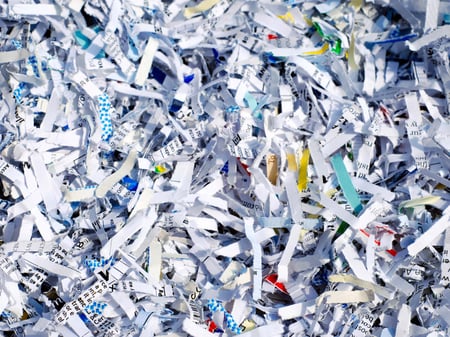Transitioning into a waste-free workplace is not only an exercise in sustainability, but can also yield significant cost savings for a company's operational waste and recycling management. Simple yet impactful changes can aid the implementation of Zero Waste policies while fostering a culture of environmental consciousness alongside enhancing operational efficiency.
Discover effective strategies for creating a zero waste office environment and maximizing efficiency in your workplace.
Why Creating a Zero Waste Office is Important
Creating a Zero Waste office is not only beneficial for the environment, but it can also significantly improve the efficiency and productivity of your workplace. By reducing waste, you can minimize the amount of resources and materials that are used, leading to cost savings for your business.
Additionally, going Zero Waste can enhance your company's reputation and attract environmentally-conscious clients and customers. It shows that your business is committed to sustainability and taking responsibility for its environmental impact.

Tip 1: Embrace reductions in Paper Waste
One of the easiest ways to reduce waste in the office is by embracing minimizing the use of paper. Instead of printing documents, encourage employees to share and collaborate on digital platforms. This not only saves paper but also reduces the need for physical storage space.
Implementing a paperless policy can have a significant impact on reducing paper waste. Encourage employees to use electronic signatures, store files digitally and send electronic invoices and receipts. By going digital, you can streamline processes and make information more easily accessible for everyone in the office.
[Here's more information on recycling paper with RoadRunner]
Tip 2: Implement Recycling Programs and Reduce Plastic Waste
Implementing recycling programs is another effective way to reduce waste in the office. Set up designated recycling bins for paper, plastic, glass and other recyclable materials. Make sure these bins are easily accessible and clearly labeled throughout the office.
To further reduce plastic waste, encourage employees to bring reusable water bottles and coffee mugs instead of using disposable ones. Provide filtered water stations and coffee machines in the office to make it convenient for employees to refill their bottles and mugs. Consider eliminating single-use plastic items such as plastic cutlery, straws, and cups.
By implementing recycling programs and reducing plastic waste, you can divert a significant amount of material from ending up in landfills and contribute to a more sustainable office environment.
Tip 3: Utilize Technology for Better Waste Management
Technology can play a crucial role in better waste management in the office. Consider implementing waste management software or equipment that can track and analyze your waste generation. These tools can help you identify areas where waste can be reduced, provide insights on more sustainable practices and hold vendors accountable to service schedules.
Additionally, smart technology tools, including new programs powered by AI, can help scan invoices to avoid discrepancies and ensure accurate price forecasting for businesses. Technology can aid in conducting a company-wide waste audit by gathering data in near real-time at scale across a company's footprint. This alleviates space constraints and makes the process less labor-intensive.

Using technology for waste management can streamline processes, improve tracking and reporting, and ultimately lead to more effective waste reduction strategies.
RoadRunner's industry-leading waste management technology and data-driven strategies are the backbone for our team of modern recycling and waste experts to reliably provide businesses with the most streamlined, affordable and sustainable waste and recycling services.
Tip 4: Encourage Sustainable Purchasing and Reduce Packaging Waste
Encouraging sustainable purchasing practices can significantly reduce packaging waste in the office. Prioritize suppliers and vendors that offer minimal or recyclable packaging. Consider buying in bulk to reduce individual packaging and opt for products made from recycled materials.
Additionally, provide reusable containers for office events and meetings instead of using disposable ones. Consider better ways to make use of available space to deal with plastic film, pallets and cardboard until these materials can be efficiently recycled.
By making sustainable purchasing choices, you can minimize the amount of waste that enters your office and contribute to a circular economy.
Businesses have the power to make a significant impact on creating a more sustainable world. They can minimize waste, optimize resources and shape a future driven by responsible and eco-conscious choices.
Let RoadRunner be your partner on this journey towards a greener, more efficient and cost-effective approach to waste management.
